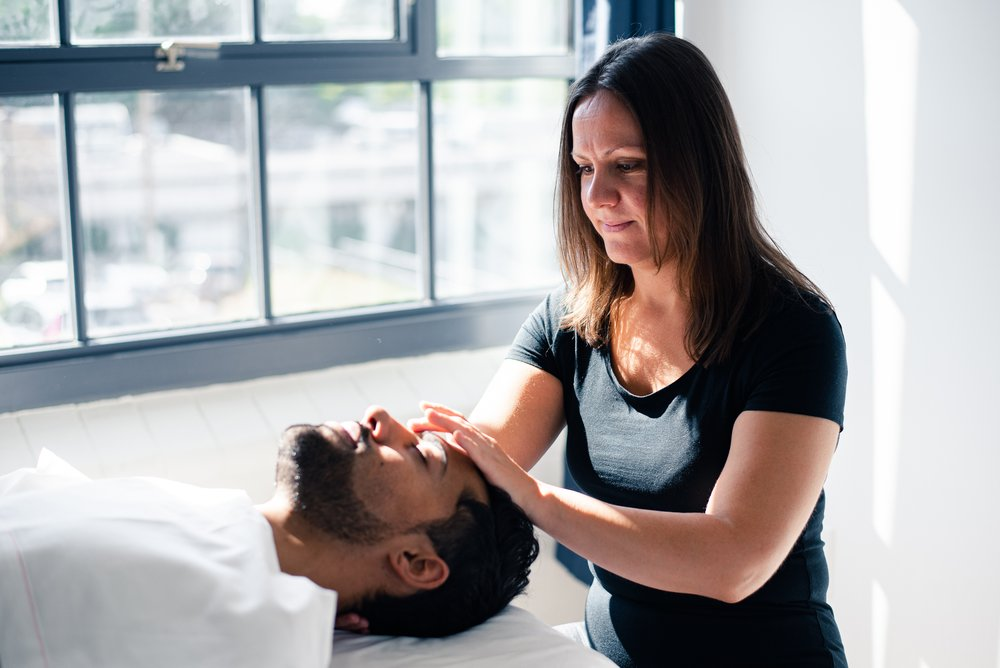
Craniosacral Therapy is an alternative therapy concerned with the mild manipulation of cranial bones and spinal columns of the body. This helps in enhancing functionality related to the central nervous system. If you are one of those who believe in holistic healing and want to empower yourself as a practitioner in Cranial Sacral Therapy, then here comes an understanding of major steps toward the same. This guide will walk you through the steps to getting certified, licensed, and ready for practice.
What are the requirements to be a professional in Cranial Sacral Therapy?
It requires one usually to be certified by an accredited institution to practice. Massage therapy, physiotherapy, or a holistic health background usually helps, though this is not a necessity.
Classes shall involve aspects such as anatomy, cranial sacral methods, and hands-on training. Prior massage therapy, physical therapy, or any other background in holistic health is helpful but not usually required.
In some regions, licensing may also be involved in certification, especially if you would like to have a private practice. Continuing education is advisable; new techniques will be constantly updating you and making you knowledgeable; often this will bring more credibility.

How long does it take to become a Cranial Sacral Therapy practitioner?
The time it takes to be a practitioner in the field of Cranial Sacral Therapy may be around a couple of months or even more than one year since several programs are available, and each has a different duration. Brief short courses are usually available, but vast learning requires long-term courses.
This depends on the program type taken up, as being a Cranial Sacral Therapy practitioner has different types of time limits, from around two months to above one year, since there are a variety of programs.
The short courses are usually available; however, the vast knowledge in learning requires taking up long-term courses. Some of these programs last a few months and give training on basic techniques of CST, while other, more comprehensive programs may last over a year because they include intensive anatomy along with hands-on training.
Added to this would be additional time needed for state licensing, where required. The learning curve will likely be shorter for those already working in the field of holistic health. It improves continuous learning and further training, allowing you to be more skilled and specialized in the field.
How much does Cranial Sacral Therapy certification cost?
The expenses to get certified vary according to the institution and level of program one enrolls in, from as little as $500 to upwards of $5,000; partial scholarships and payment plans exist, however.
Certification costs will depend on the length of time and the depth that a course covers. Entry-level certification training courses range from $500 to $1,500. More intensive programs with practical exposure and advanced procedures can reach as high as $5,000 or even higher.
The costs above may also be extended by textbooks, materials, and licensing fees. Some schools offer scholarships, plans for financing payments, or other financial assistance.
Ensure that you research a few schools so that you will find a program that meets your needs and budget and provides you with the best institution’s credibility and recognition for your career goals.
What is the key competence for Cranial Sacral Therapy?
The main competencies for Cranial Sacral Therapy encompass a deep understanding of anatomy, good hand-eye coordination, gentleness of touch, and listening to the body of the client. One also needs emotional intelligence.
Cranial Sacral Therapy requires detailed knowledge of human anatomy, especially the craniosacral system in depth. The CST involves a very subtle, yet precise, touch that is greatly aided by a strong sense of hand-eye coordination and light touch.
Aside from that, tuning into the signals of the body both physically and intuitively is a certain way to go. Emotional intelligence will be called upon in providing the necessary safety and support as the client releases accumulated tension and stress. Ongoing practice and continuing professional development are needed for each of these skills to further hone them.

Do I need licensing to administer Cranial Sacral Therapy?
Licensing for Cranial Sacral Therapy varies depending on the region. Sometimes, one can be called upon to obtain a state license if one incorporates CST with other therapies, such as massage or physiotherapy.
The practice of Cranial Sacral Therapy operates under different license requirements based on the local regulations. Some states require a license for CST practitioners, especially when this modality is combined with other modalities such as massage or physiotherapy.
Most require an examination for licensure and continuing education hours to maintain the license in active status. In other areas, there may be fewer restrictions that allow certified CST to be practiced. It’s very important to check your local regulations about your practice before you start and make sure legality in your region.
Why become a Cranial Sacral Therapy Practitioner?
A Cranial Sacral Therapy practitioner enjoys personal fulfillment with flexible work schedules, enabling other people to improve their well-being by using holistic methods. This profession is rewarding with an increasing demand in alternative health modalities.
Approaching the decision to become a Cranial Sacral Therapy professional will have several benefits in personal and professional ways. This career is also rewarding since one feels satisfied, knowing that the clients are able to restore their physical and emotional balance by the use of a non-invasive and holistic approach.
The flexible work hours and the potential to have your own practice bring about work-life balance and autonomy. Demand for qualified CST practitioners has gone up due to increasing numbers of people embracing alternative health care; hence, this brings about many opportunities in wellness centers, private practice, and integrative health care. Personal growth and continued learning make this profession rewarding in the long term.
Conclusion:
A career in Cranial Sacral Therapy will be personally and professionally rewarding, as you support clients’ overall well-being. The demand for alternative therapies is growing annually, whether privately, at wellness centers, or among healthcare professionals. Proper certification and licensing, combined with ongoing building skills, will afford you an opportunity to thrive in this fast-emerging field while helping others along their healing path.

